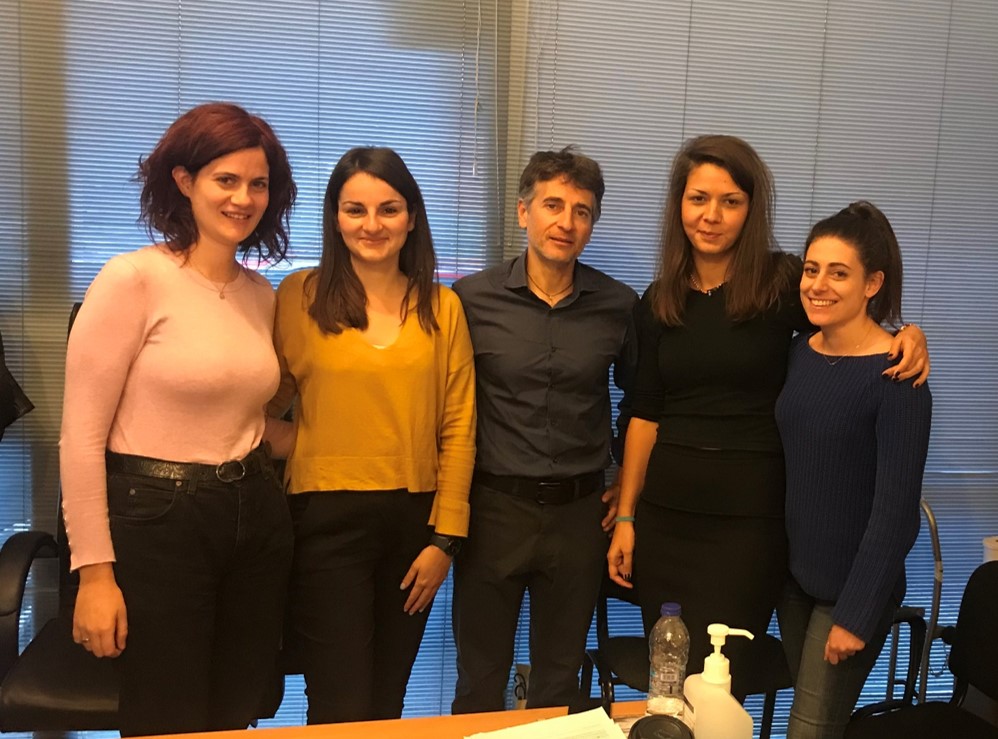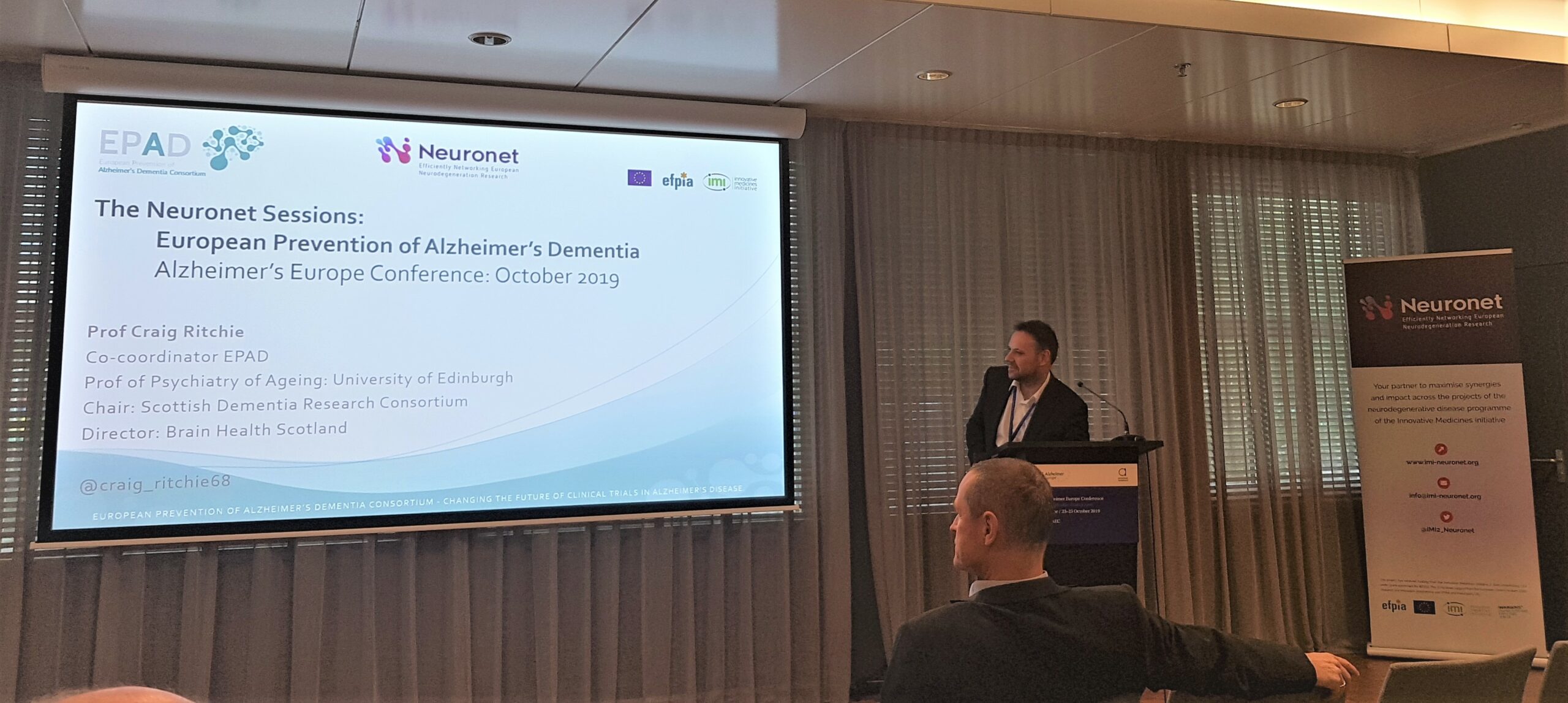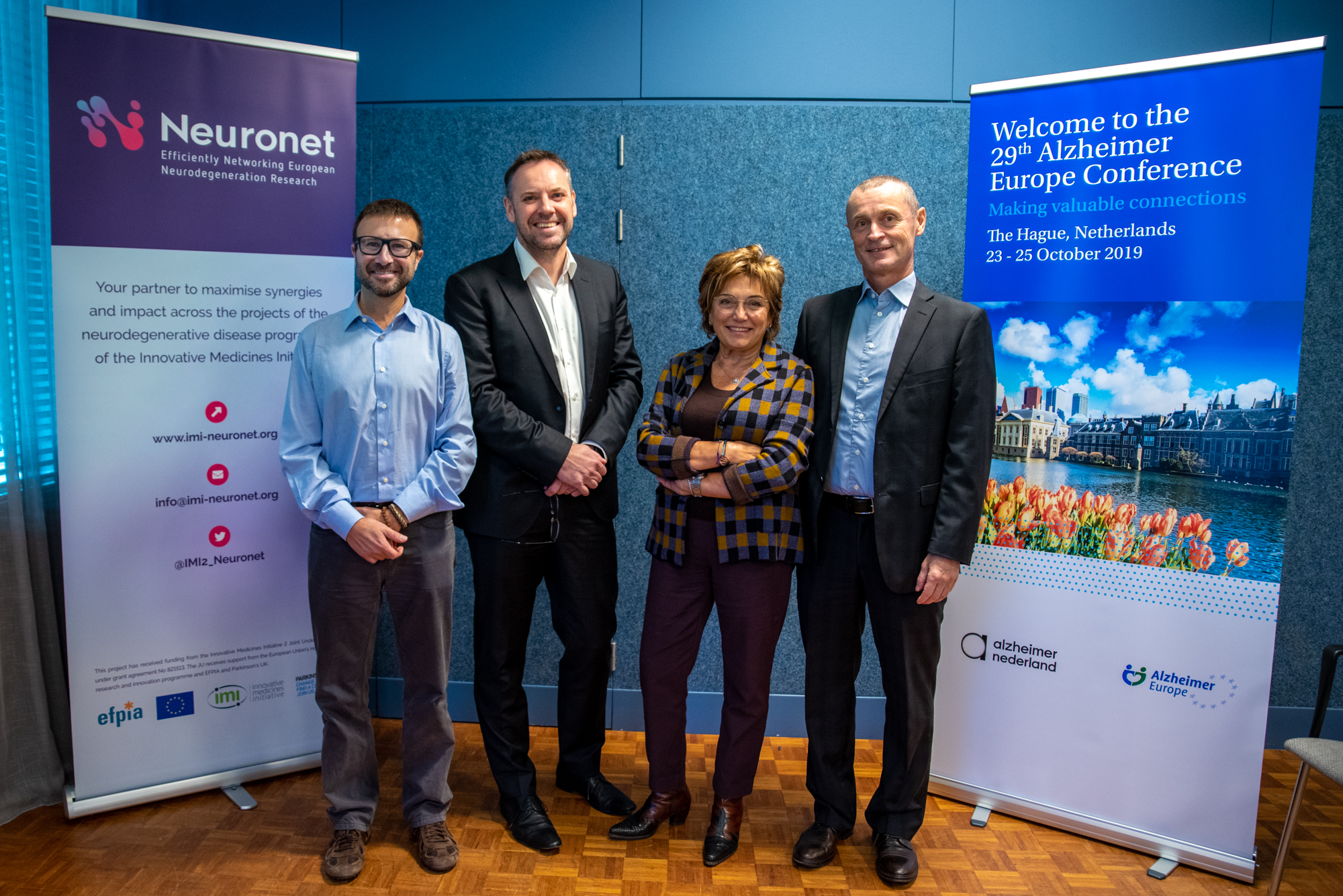This month, we get to know the Aeginition Hospital (Athens, Greece) centre behind EPAD. The team of Nikolaos Scarmeas (principal investigator of the EPAD project in Aeginition Hospital) began recruiting in September 2019 and has currently recruited 14 participants in the EPAD Longitudinal Cohort Study (LCS). We caught up with his team and asked them a few questions about their best practices and recruitment strategies.
Any top tips for running the LCS efficiently at your site? We invest a lot of time and effort in communicating with possible EPAD candidates, explaining them in detail the procedures of EPAD and the importance of their role in research activities. Furthermore we work closely with our colleagues in other sections of the hospital so that we make sure that we schedule all the appointments included in each visit (e.g. neuropsychological assessment, sample collection, brain imaging) taking into consideration each participant’s daily routine and special needs. In other words, we show a lot of flexibility (i.e. duration, timing and number of visits) towards accommodating participants’ schedules. We believe that this has helped us increase the engagement of our participants, bearing in mind that we also have volunteers coming from regions not of immediate proximity to our centre.
How are you able to find suitable subjects for the cohort? The main source of eligible EPAD participants is the Cognitive Disorders Clinic of Aeginition Hospital. There is only a single Medical School in Athens (that of the National and Kapodistrian University of Athens – NKUA) and Aeginition is the University Hospital for Neurology and Psychiatry of the NKUA. Every year we thoroughly evaluate more than 300 people, some of which are diagnosed with either subjective cognitive complaints or mild cognitive impairment, and are interested in participating in research projects on Alzheimer’s disease (AD). Moreover, we run another observational study, the Aeginition Longitudinal Biomarker Investigation Of Neurodegeneration (ALBION) aiming towards increasing understanding of the preclinical and prodromal stages of AD. Except from the medical and neuropsychological examination, we further collect bio-samples and run laboratory tests for all participants of ALBION. Thus we are able to find participants with ApoE and amyloid brain pathology that match the EPAD eligibility criteria. Furthermore two additional activities have helped us in finding suitable participants: a) close collaboration with the Non Governmental Organization Athens Alzheimer Association which runs Day Care Centers and Memory clinic services all over Athens and b) participation in medical and neurological conferences where we inform health professionals regarding our research activities.
Any past or future events/conference which have been beneficial for recruitment into EPAD? We have announced our research activities in the National Neurological Conferences, as well as in the local and National conferences on dementia themes. We have also been informing the general public in talks and presentations for lay audience. We intend to continue to do so as the EPAD activities continue to evolve. We are also in the process of groundwork towards strengthening our network with the public primary care centres in our region.
Any activities in terms of participant engagement? Regarding the research participants that have already been enrolled in EPAD, we intend to communicate with them in a frequent basis reminding them of the EPAD goals and asking them about their current condition and needs. We will also continue to inform them about the usefulness of spreading the news to other potential participants they may know.
Pictured (from left to right): Eirini Mamalaki, Eva Danasi, Nikolaos Scarmeas, Faidra Kalligerou and Dora Brikou.
EPAD update
We currently have 28 sites across Europe enrolling and almost 2,000 research participants screened. Congratulations to the site Sheffield (UK) for screening their first research participants in November. We are pleased that this site became the latest addition to the EPAD family.
We hope that you will share our positive assessment of the continuing progress of this exciting research collaboration. Stay tuned for more news next year. EPAD thanks you all for the hard work within 2019 and wishes you Merry Christmas and a very happy New Year to all of you and your families!











